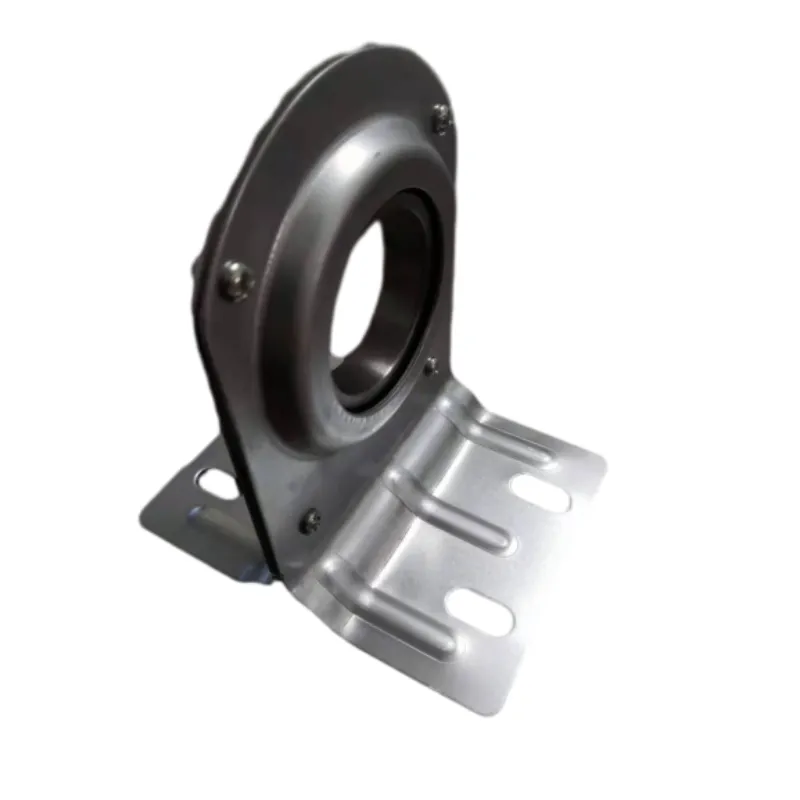
Nov . 16, 2024 18:48 Back to list
ball groove bearing
Understanding Ball Groove Bearings Design, Function, and Applications
Ball groove bearings are integral components in various mechanical systems, offering a unique combination of efficiency, reliability, and precision. These bearings, often referred to as ball bearings, are designed to reduce friction between moving parts, thereby enhancing the overall performance of machines and mechanisms. Let’s delve into the structure, function, advantages, and applications of ball groove bearings.
Structure and Design
At the core of a ball groove bearing is its simple yet effective design, characterized by inner and outer rings, a cage, and balls. The inner ring typically connects to a rotating shaft while the outer ring is fixed within the housing. The balls are seated in a groove that allows them to roll smoothly between the inner and outer rings. This rolling motion minimizes contact area and, consequently, reduces friction. Additionally, the presence of a cage ensures that the balls are evenly spaced and do not collide with one another, promoting durability and smooth operation.
The choice of materials used in ball groove bearings is critical
. They are often constructed from high-carbon chromium steel, stainless steel, or ceramic, depending on the required load capacities and environmental conditions. The surface finish of these components is also paramount, as it influences not only the friction characteristics but also the overall lifespan of the bearing.Functionality
Ball groove bearings operate on the premise of reducing friction through rolling contact. When a load is applied, the balls roll along the grooves, distributing the load across multiple points. This rolling contact is significantly more efficient than sliding contact, reducing wear and thermal energy generation, thus increasing the lifespan of both the bearing and the connected components.
These bearings also allow for radial and axial movement. This feature is extremely beneficial in applications where both radial and axial loads need to be addressed. Moreover, the ability to accommodate moderate misalignments adds to their versatility.
ball groove bearing

Advantages
One of the primary advantages of ball groove bearings is their high efficiency. They can operate at high speeds while maintaining low frictional loss, making them ideal for various applications. They also exhibit excellent load-carrying capacity and less susceptibility to wear over time compared to traditional sliding bearings.
Another notable benefit is their ease of installation and maintenance. Most ball groove bearings are pre-lubricated and sealed, requiring minimal upkeep. This user-friendly aspect contributes to reduce downtime and increases productivity in industrial settings.
Applications
Ball groove bearings are ubiquitous in many industries. Their applications range from household appliances, such as electric fans and washing machines, to critical machinery in manufacturing, automotive, and aerospace industries. For instance, in the automotive realm, these bearings play a vital role in the smooth functioning of engines, wheel hubs, and transmission systems.
In the aerospace sector, precision is paramount, and ball groove bearings are used in critical components like turbines and landing gears, where reliability and minimal weight are essential. In robotics and automation, where high speeds and precision are crucial, ball groove bearings ensure that robotic arms can move smoothly and efficiently.
Conclusion
In summary, ball groove bearings are a foundational technology in modern machinery, offering unmatched efficiency, durability, and versatility. Their design allows for minimal friction and high load-bearing capabilities, making them suitable for a wide range of applications. As industries continue to evolve and demand greater precision and efficiency, the relevance of ball groove bearings is likely to grow, paving the way for innovations that capitalize on their strengths. Whether in everyday household items or complex industrial machines, these small components play a critical role in the functionality and performance of modern technologies.
Latest news
-
Grooved Ball Bearing Design and Functionality
NewsJun.04,2025
-
Concrete Mixer Bearing Load Capacity Testing
NewsJun.04,2025
-
6004 Bearing Dimensions in Robotic Joint Designs
NewsJun.04,2025
-
Advantages of Single-Row Deep Groove Ball Bearings
NewsJun.04,2025
-
Applications of Deep Groove Ball Bearings in Automotive Systems
NewsJun.04,2025
-
Innovations in Bearing Pressing Machine Design
NewsJun.04,2025
